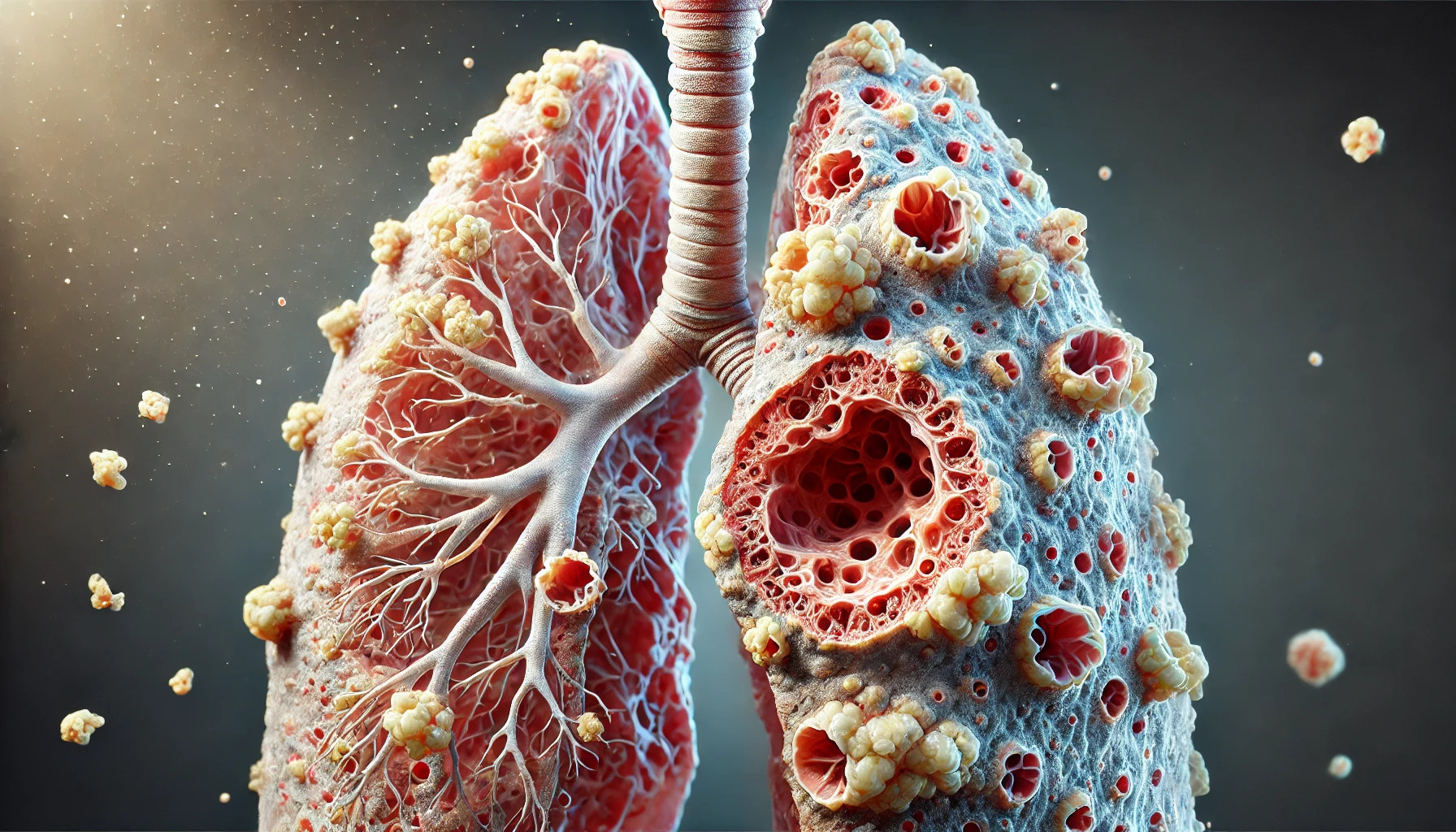Lung cancer, a formidable adversary, has touched countless lives, evolving into a global epidemic. As we step into 2023, only in the USA approximately 238,340 individuals will face a formidable challenge.
The numbers tell a tough story: 1 in 16 people will likely experience a lung cancer diagnosis during their lifetime. For men, the risk is 1 in 16, while for women, it's 1 in 17. But within this challenging reality, there's a spark of hope.

Today, we embark on a journey to delve deep into the intricacies of new treatments for lung cancer. We'll uncover the recent advances in lung cancer treatment, subtleties, advantages, and potential challenges. So, let's satisfy our curiosity as we explore the ever-evolving landscape of lung cancer care.
Keytruda Approval: A Game-Changer in Lung Cancer Care
How Keytruda Changed the Game:
In early 2023, the FDA reached a significant milestone by granting approval to Keytruda (pembrolizumab). It is a new immunotherapy for lung cancer. This approval broadened the horizons of treatment for patients grappling with specific stages of non-small cell lung cancer (NSCLC).

Keytruda has demonstrated its immense potential in the tireless battle against lung cancer, providing a ray of hope and inspiration as it successfully emerges from rigorous clinical trials.
Dr. Roy S. Herbst, a prominent lung cancer specialist, emphasizes the importance of this approval, referring to it as an “insurance” against the recurrence and spread of cancer. He mentioned that even after surgical removal of lung cancer, there's a high chance of recurrence, often exceeding 50%. However, this new cancer treatment for lung cancer Keytruda aims to prevent the cancer from returning.
Balancing Risks and Rewards:
Keytruda is indeed a remarkable medical advancement, but, like many medicines, it can have side effects.
Are you curious to know about the side effects and benefits of Keytruda?
Nonetheless, the advantages significantly outweigh any concerns. Keytruda uses an innovative immunotherapy approach that directs the body's immune system to precisely target and fight cancer cells. This approach is more focused and potentially more effective, renewing hope for those in the fight against cancer.
- Musculoskeletal pain: One of the common side effects.
- Mild skin problems: Although not specified, skin issues are mentioned as milder side effects.
- Fatigue: Some patients may experience fatigue as a side effect.
It's worth mentioning that although these side effects are listed, Keytruda is widely acknowledged to have fewer side effects than conventional treatments such as chemotherapy. Also, the specific side effects can vary from person to person. It is of utmost importance for patients to consult their doctors in order to fully grasp the potential side effects and learn effective ways to manage them.
Key Takeaways:
- Keytruda secures FDA approval for specific NSCLC stages.
- Clinical trials have substantiated its potential.
- Its utilization of immunotherapy offers a precision-oriented approach.
But that's not all, let's keep reading. Ready for the next breakthrough?
FDA Approval of Pralsetinib: Non-small cell lung cancer breakthrough
The Journey of Pralsetinib:
Pralsetinib achieved a remarkable feat in the fight against lung cancer in August 2023. It received full-fledged FDA approval for metastatic RET fusion-positive non-small cell lung cancer. This journey commenced with an accelerated approval in 2020 and involved rigorous clinical trials that validated its efficacy.
Striking a Balance Between Pros and Cons:
While Pralsetinib heralds a new era in lung cancer treatment, it's not a universal remedy. The potential of this treatment is particularly bright for patients who have not received any previous treatment. The benefits it brings to the table are substantial, though it may not be a one-size-fits-all solution.
Key Insights:
- Pralsetinib secures FDA approval for a distinct subtype of lung cancer.
- Building upon its accelerated approval in 2020.
- The combination of high overall response rates and an impressive duration of response is a source of renewed hope.
Differentiation from Conventional Treatments:
Although conventional treatments for lung cancer have been extensively utilized for a significant period, the advent of precision therapies like Pralsetinib signifies an extraordinary result from the conventional methodology.

According to data from the National Cancer Institute, traditional treatments for lung cancer, such as chemotherapy and radiation, often come with debilitating side effects.
| Keytruda | Pralsetinib | Conventional Treatments |
| It's an immunotherapy. Utilizes the immune system to target cancer cells specifically. | It's a targeted therapy. Targets a specific genetic mutation responsible for cancer growth. | Broad-based treatments that can harm both cancerous and healthy cells |
| Fewer and milder side effects, such as fatigue or mild skin problems. | manageable side effects, with some patients experiencing minor issues. | Often lead to severe side effects like nausea, hair loss, and extreme fatigue. |
| Patients may experience a better quality of life during treatment with minimal disruptions to daily activities. | Can provide a better quality of life during treatment with fewer side effects | Significantly impact a patient's daily life due to side effects |
Data from the American Cancer Society sheds light on the magnitude of this distinction, revealing that conventional therapies typically yield a median survival rate of approximately 4 to 6 months for individuals afflicted with advanced lung cancer. In contrast, precision therapies like Pralsetinib have shown remarkable median survival rates of more than 3 years for patients with the specific genetic mutation it targets. This isn't just a marginal improvement; it's a transformation in the way we approach lung cancer treatment.
In 2023, we're witnessing a significant shift in how we approach lung cancer treatment. Each day brings new hope in the fight against this relentless disease. Innovations like immunotherapy, targeted therapies, and FDA approvals are reshaping the landscape of lung cancer care. These breakthroughs bring us closer to better outcomes and improved quality of life for patients and their families.
As we uncover the complexities of lung cancer and explore the options for the latest treatment for lung cancer, our journey toward a cure continues. Hope remains unwavering, and together, we have the potential to make a substantial difference.
References:
https://www.curetoday.com/
https://www.lungcancerresearchfoundation.org/


